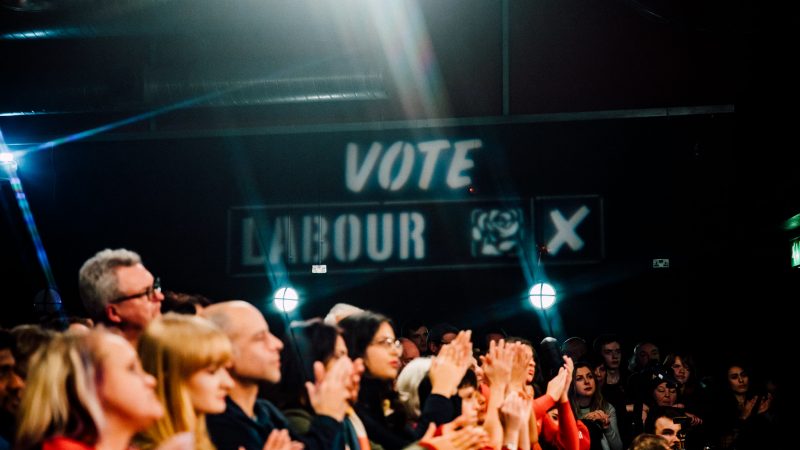
Just before the Christmas holidays, officers in our local party – Streatham Labour – signalled their intention to rush through a motion aimed at excluding up to 90% of the current membership from voting in our monthly meetings. We understand that they intend to hear a motion on this at our next meeting, although they are yet to notify members about this and there are outstanding questions about its legitimacy. As we struggle with declining levels of membership and activism, prepare for upcoming local elections and attempt to re-engage party members with the challenges of Covid, sneaking through a big change that undermines our party democracy is the last thing we should be doing.
There are currently two ways for Constituency Labour Parties (CLPs) to run regular monthly meetings. Under a general committee (GC) system, members of local Labour branches, socialist societies and affiliated trade unions vote for delegates to represent them at the top table. Under an all-member meeting (AMM) system, every single member of the local party, affiliated organisations or trade unions is entitled to vote at and attend monthly meetings.
It’s nearly three years since Streatham moved to adopt the AMM system. By democratising local party meetings, we’ve not just given members more of a say in how our party is run, we’ve turned them into forums for meaningful political debate and education. Our CLP has hosted informative and inspiring speakers from across the Labour political spectrum, including big names such as Jeremy Corbyn MP, Dawn Butler MP, Lord Andrew Adonis and novelist Ben Okri, as well as local community leaders, youth workers, refugee support workers and housing activists.
Our decision followed a thorough and open debate, where motions were moved and debated at branch level, branches and affiliates consulted, and both sides had the chance to publish materials making their case. It’s worth asking why our current officers are so keen to hurry this change through and obscure its passage.
It seems extraordinary that ordinary members, upon whose time and treasure our vital ground game at the next local and general elections depends, should be asked to disenfranchise themselves en masse in this way. But if the current Streatham officers really are serious about reverting to the GC system in which only a small number of delegates can vote, the least they can do is to postpone the decision on this and focus our energy on local elections until we can give it the thorough consideration it requires.
Under the GC system, branches vote annually for delegates, who in turn vote at monthly CLP meetings. This means members newly arriving in a CLP have to wait until the next annual general meeting for the chance to become a delegate. In Streatham, the GC system formed an effective barrier to newer and particularly more transient younger members – often renting on short tenancies – taking their place in party decision-making structures. It meant that older, more established members were over-represented and created a situation where the CLP was promoting positions and making decisions that a majority of its membership simply didn’t back.
It was a system of elite control, with two classes of members attending monthly meetings: a minority with voting rights and a majority unable to vote. No doubt those advocating for a return to the GC will claim that the AMMs have too many attendees to be manageable, but this overlooks the fact that all Streatham members were allowed to attend monthly CLP meetings under the old system – the difference was that only delegates could vote. The purpose of a GC isn’t crowd control – it’s about restricting the franchise at the top level to members trusted to endorse the position of the group in control of the CLP. It is about maintaining and concentrating power.
Delegates were not required to attend a minimum number of meetings and under no obligation to consult or disclose voting records to branch members, who were left feeling unrepresented and voiceless. Neither were members told the total number of delegates eligible to participate in CLP meetings, let alone see the list of who they were. The closely guarded list gave incumbents a massive advantage because they knew exactly how many votes they needed to win an election or pass/defeat a motion. Meanwhile, if ordinary members wanted to run for officer positions or campaign on a particular issue, they had no idea how many delegates they needed to win over or who to canvass.
Last time, supporters of moving away from the GC system were accused of trying to undermine the union link, but affiliations still exist under AMMs. And in the years before we adopted AMM, not a single motion was moved by a union branch at CLP party meetings in the five years before we made the switch. Trade unions were effectively left unrepresented at the top table for the final year of Streatham GC meetings because unrepresentative officers chose factional candidates to fill trade union rep posts, rather than people actually keen to do the job.
In the first instance, Streatham CLP officers must ensure the motion is compliant with party rules. But more importantly still, they must remember the stark democratic deficit the GC created in Streatham and the damaging effect of refusing members a real say on important decisions had on their trust in decision-making, and consequently on local participation and campaigning. We are urging all Streatham Labour members to attend the all member meeting on Thursday 27th January at 7.30pm to defend democracy and vote against this power grab.
Dr Linda Milbourne, Dr Jeremy Isaacs and Rod Smith write in a personal capacity.




More from LabourList
‘The hope that kills you’: Reflections from the final day in Gorton and Denton
MPs, union leaders and organisations react to ‘bruising’ Gorton and Denton result
A gory night for Labour